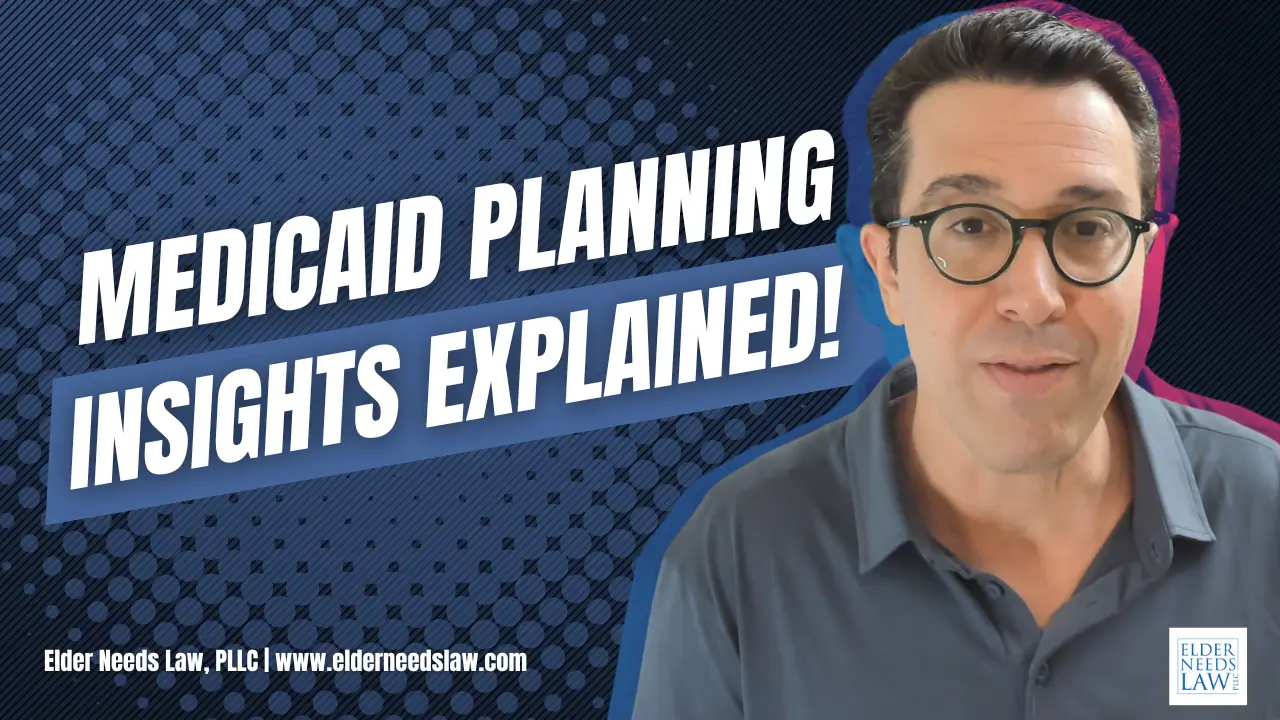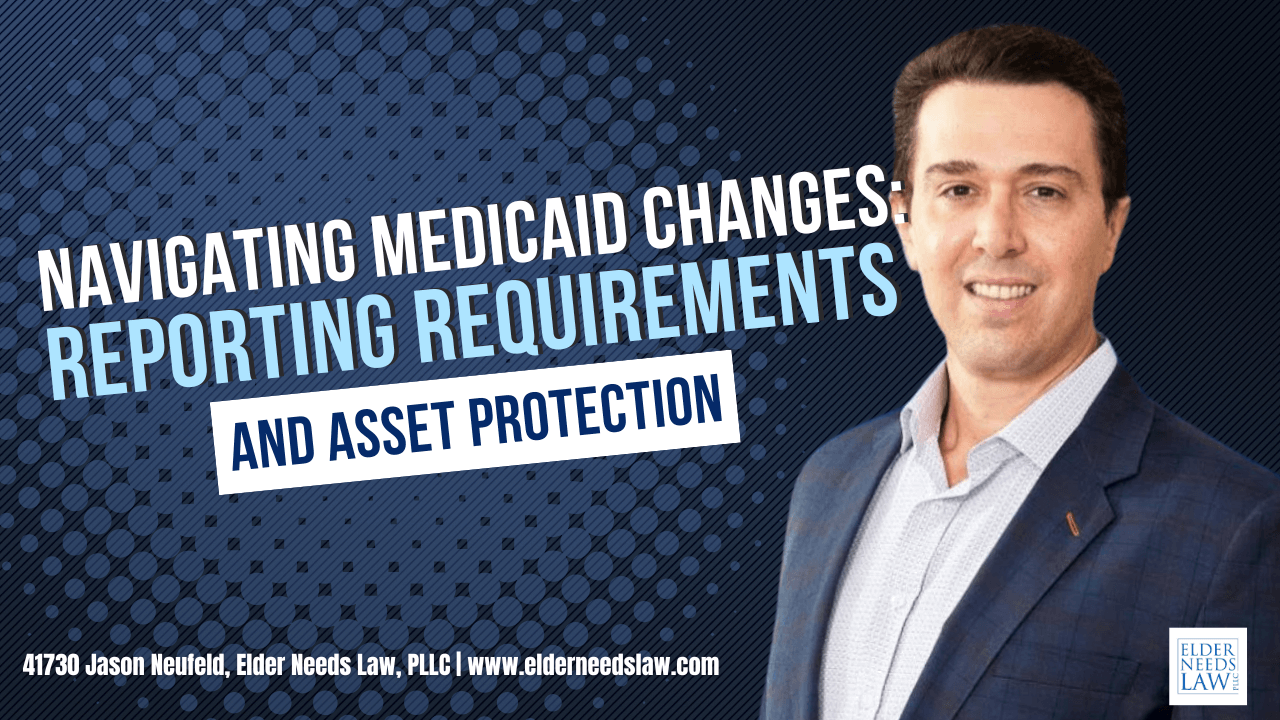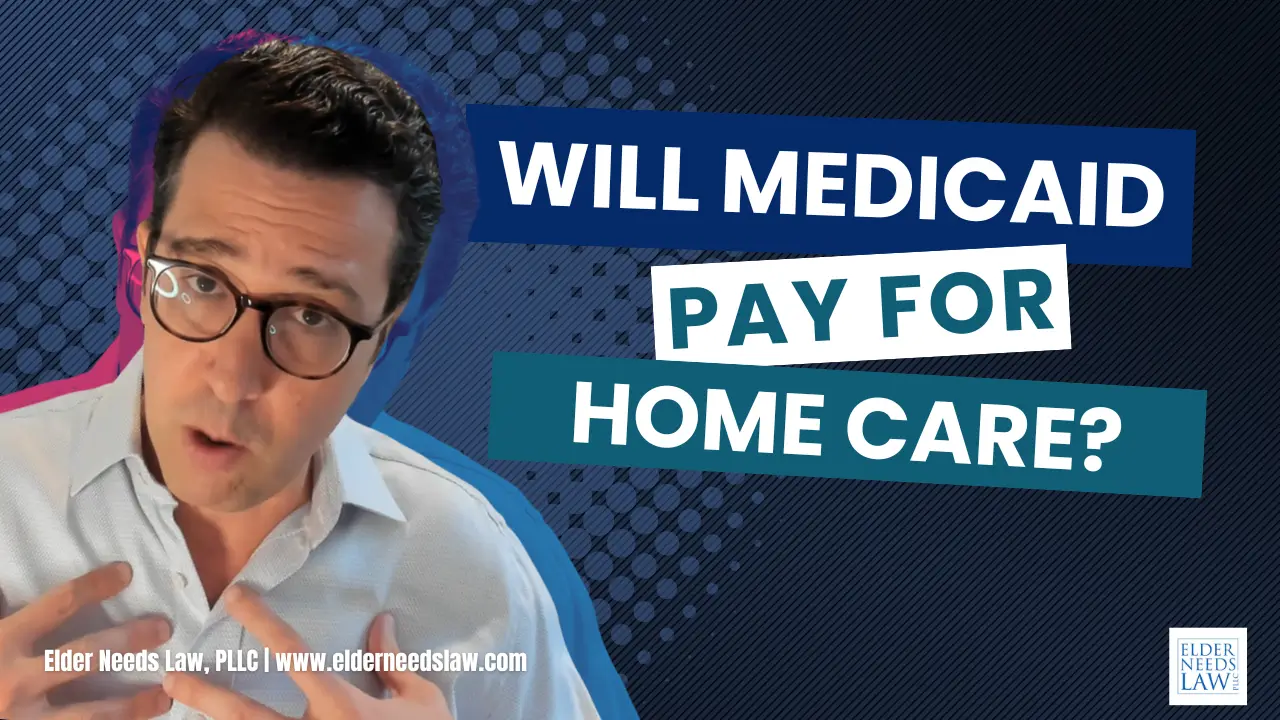Florida Medicaid Planning: Multiple Strategies for Every Family's Unique Situation

Watch our complete video guide on Medicaid planning strategies:
When it comes to Medicaid planning in Florida, there's no one-size-fits-all solution. As a board-certified elder law attorney, I've seen countless families come to me with stories from their neighbors - some who put everything in a trust, others who had to sell their homes. The truth is, every family's situation calls for different approaches, and there are far more options available than most people realize.
Your Neighbor's Solution Might Not Be Yours
One of the biggest misconceptions I encounter is when clients say, "My neighbor did X, so I want to do X too." But here's the reality: the person who needs help paying for nursing home care requires completely different planning than someone who wants to stay in their home while receiving Medicaid-funded home health services.
In Florida, Medicaid planning isn't about applying a cookie-cutter approach. It's about crafting a personalized strategy that fits your family's unique circumstances, financial situation, and long-term care goals.
The Two-Fold Purpose of Medicaid Planning
When I work with clients, we focus on achieving two main objectives:
Primary Goal: Maximizing Quality of Life My absolute priority is preserving your assets so you can benefit from Florida's long-term care Medicaid programs - whether that means receiving care at home, in assisted living, or in a nursing facility. The protected assets then enhance your quality of life beyond what government benefits alone can provide.
Secondary Goal: Protecting Assets for the Next Generation While ensuring you receive the care you need, we also work to protect whatever assets we can for your family's future. Most clients want to live with dignity and comfort while also leaving something behind for their children and grandchildren.
Medicaid Estate Recovery: Not the End of the Story
Many people avoid Medicaid planning because they've heard "Medicaid will just take everything anyway." While Florida does have Medicaid estate recovery programs, there are legitimate, legal strategies to significantly minimize or sometimes completely avoid what Medicaid can claim after you pass away.
These strategies are entirely above board and ethical. They're designed to work within Florida's Medicaid laws to protect your family's financial future while ensuring you get the care you need.
The Truth About "Medicaid Trusts"
Here's something that might surprise you: there's no single thing called a "Medicaid trust." This term actually covers multiple different types of trusts, each serving different purposes:
- Income trusts for managing monthly income
- Asset protection trusts for shielding resources
- Probate avoidance trusts for estate planning
- Testamentary trusts that activate after death
When your neighbor mentions their "Medicaid trust," they could be referring to any of these options. Your situation might call for a different type of trust entirely - or no trust at all.
Beyond Trusts: Alternative Medicaid Planning Strategies
Many effective Medicaid planning strategies in Florida don't involve trusts whatsoever:
Real Estate Investments Sometimes we work with realtors to protect assets through strategic real estate purchases. Florida's homestead exemption laws can be particularly beneficial in these strategies.
Promissory Notes These financial instruments can help restructure assets in ways that support Medicaid eligibility while preserving family wealth.
Caregiver Agreements Often, family members are already providing care. Formal caregiver agreements allow us to compensate them legally, which can help with Medicaid planning while ensuring fair payment for their services.
Layered Strategy Approach The most effective approach often combines multiple strategies. We might use real estate investment alongside a caregiver agreement, or combine an income trust with strategic asset restructuring. Each layer works together to maximize benefits while minimizing drawbacks.
Florida-Specific Considerations
Florida's Medicaid rules and estate planning laws offer unique opportunities and challenges:
- Homestead Exemption: Florida's generous homestead laws can protect your primary residence
- Income Limits: Florida has specific income thresholds that affect eligibility
- Asset Limits: Current Florida Medicaid asset limits influence which strategies work best
- State Recovery Programs: Florida's estate recovery rules require specific planning approaches
The Planning Process: Tailored to Your Family
Every family I work with receives a customized approach based on their specific situation:
- Assessment of current assets and income
- Analysis of likely care needs and preferences
- Review of family dynamics and goals
- Development of layered strategy recommendations
- Implementation with ongoing support
Don't Wait to Start Planning
Florida's Medicaid rules include look-back periods and other timing requirements that make early planning crucial. The strategies available to you today might not be available if you wait until a health crisis occurs.
Whether you're concerned about protecting your home, ensuring quality care, or leaving something for your children, there are options available. The key is working with someone who can evaluate your complete situation and recommend the right combination of strategies for your family.
Take the Next Step
Medicaid planning in Florida offers numerous pathways to protect your assets while ensuring access to quality long-term care. Don't let misconceptions or your neighbor's experience limit your options.
Ready to explore your Medicaid planning options?
📞 Contact us for a consultation 🌐 Visit our website: elderneedslaw.com 📚 Get more information: medicaidplanninglawyer.com
📖 For deeper insights, check out our book: "Medicaid Planning: How to Protect Your Assets and Get Help Paying for Long-Term Care" - available on Amazon.
Jason Neufeld is a board-certified elder law attorney serving clients throughout Florida. His practice focuses on helping families protect their assets while accessing the long-term care services they need.







